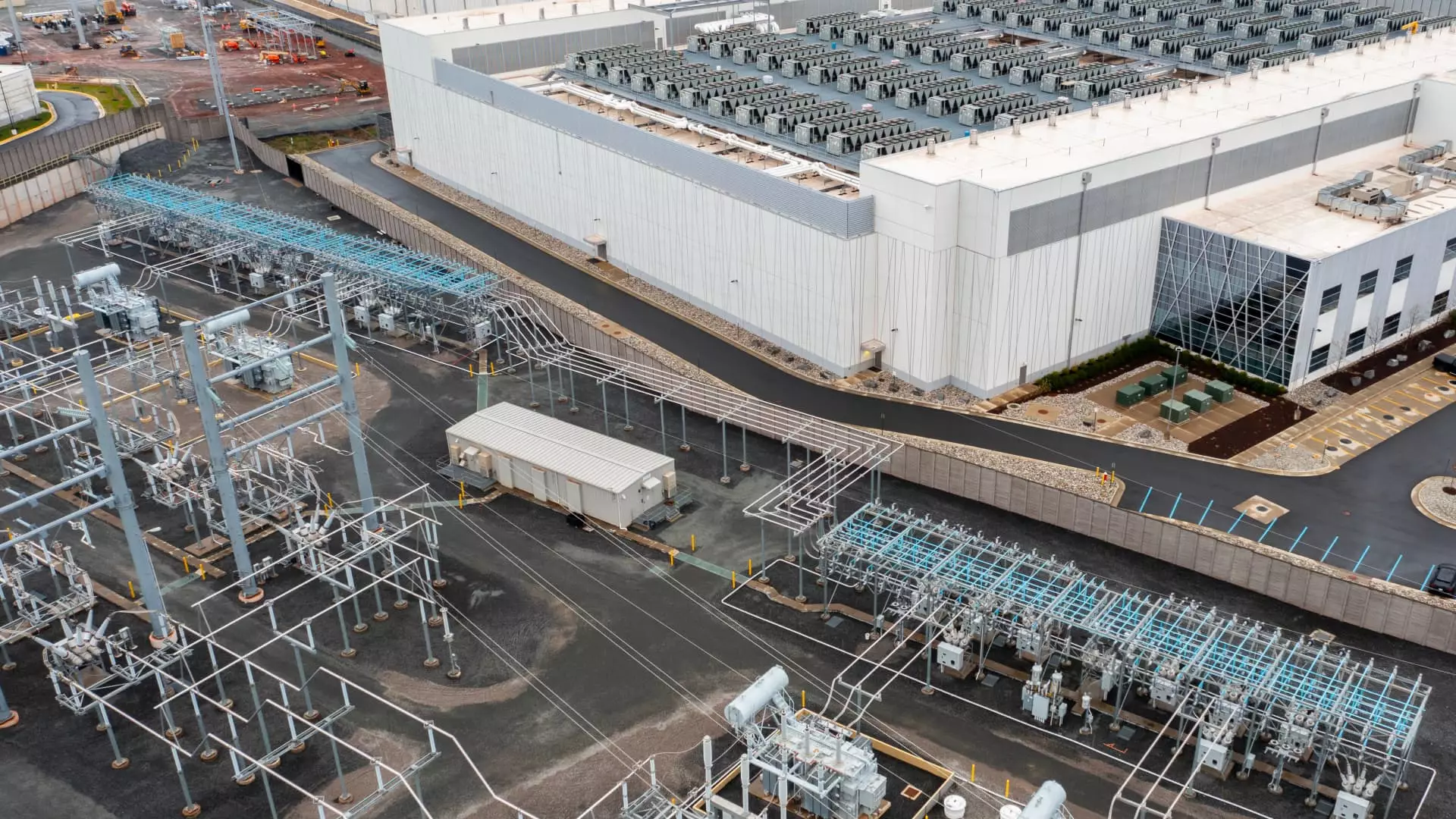As technology companies continue to expand into artificial intelligence (AI) and cloud computing, their energy consumption is reaching unprecedented levels. In response, there’s been a growing interest in harnessing nuclear power to meet these demands, touted for its reliability and environmental benefits. However, recent developments reveal serious obstacles as regulatory bodies scrutinize such partnerships. The Federal Energy Regulatory Commission (FERC) recently denied a pivotal request from the independent power producer Talen Energy to increase the power output from the Susquehanna nuclear facility to a data center owned by Amazon, showcasing the regulatory hurdles that could hinder the intersection of nuclear energy and cutting-edge technology.
In March, Talen Energy made headlines by selling its data center campus to Amazon for a staggering $650 million, intending to power the facility with energy from the nearby Susquehanna nuclear plant. Independent power production agreements like this represent a pioneering shift in energy sourcing, particularly in a time when tech companies are under pressure to find sustainable energy solutions that can keep pace with their electricity needs. However, the FERC’s denial to elevate the power dispatch from 300 megawatts to 480 megawatts not only stifles this particular agreement but also exposes broader challenges faced by the energy and tech sectors in their quest for collaboration.
Following FERC’s rejection, Talen Energy’s stock took a notable hit, sinking more than 5% in premarket trading, with other companies like Constellation Energy and Vistra Corp. feeling the impact as well. Investor forecasts had anticipated similar partnerships, and the abrupt halt raises questions about the future viability of such ventures. As Talen expressed concern over the “chilling effect” on economic development in pivotal states like Pennsylvania, New Jersey, and Ohio, the energy landscape appears vulnerable to regulatory uncertainties that dampen investor confidence.
The decision comes amid a pronounced shift in energy consumption patterns, where data centers—critical for powering AI applications and cloud services—are grappling with mounting electricity demands. Traditional utilities are racing to adapt, scouting sustainable energy solutions capable of providing adequate power without breaking the bank for consumers. The significance of the FERC’s decision cannot be understated; it sets a precedent that may deter other ambitious energy projects, especially those seeking to power tech-centric facilities with nuclear energy.
While the FERC decision does not have direct ramifications on Constellation’s initiative to rejuvenate the Three Mile Island nuclear facility to provide power through a purchase agreement with Microsoft, it nonetheless reflects an atmosphere of uncertainty in the nuclear energy sector. Tech giants like Amazon and Microsoft are aiming to align their strategies with green energy solutions, and failure to solidify partnerships could forestall progress on that front. Both Constellation and Vistra are tapped into the energy needs of emerging tech sectors, viewing nuclear energy as a cornerstone in balancing reliability and environmental responsibility.
Despite recent setbacks, the bullish performance of stocks in the energy sector, including Vistra and Constellation, indicates a robust investor outlook regarding the convergence of technology and power generation. Both companies have seen their stock prices soar, with entities like Vistra even surpassing leading tech stocks in the S&P 500. Such investor enthusiasm underscores a broader industry trend: the increasing urgency for reliable, sustainable solutions to support the burgeoning demands of the digital age.
The interplay between nuclear energy and technological innovation is fraught with complexities, as evidenced by the recent FERC ruling. While challenges abound, the commitment of tech corporations towards implementing green energy solutions is unwavering. As stakeholders navigate regulatory frameworks and economic implications, the pursuit of reliable power will ultimately reshape the landscape of energy consumption in the tech realm. The outcome may hinge not only on regulatory approvals but also on continued investment, innovation, and collaboration across sectors, highlighting that while hurdles exist, the pursuit for a sustainable energy future remains undeniably critical.

